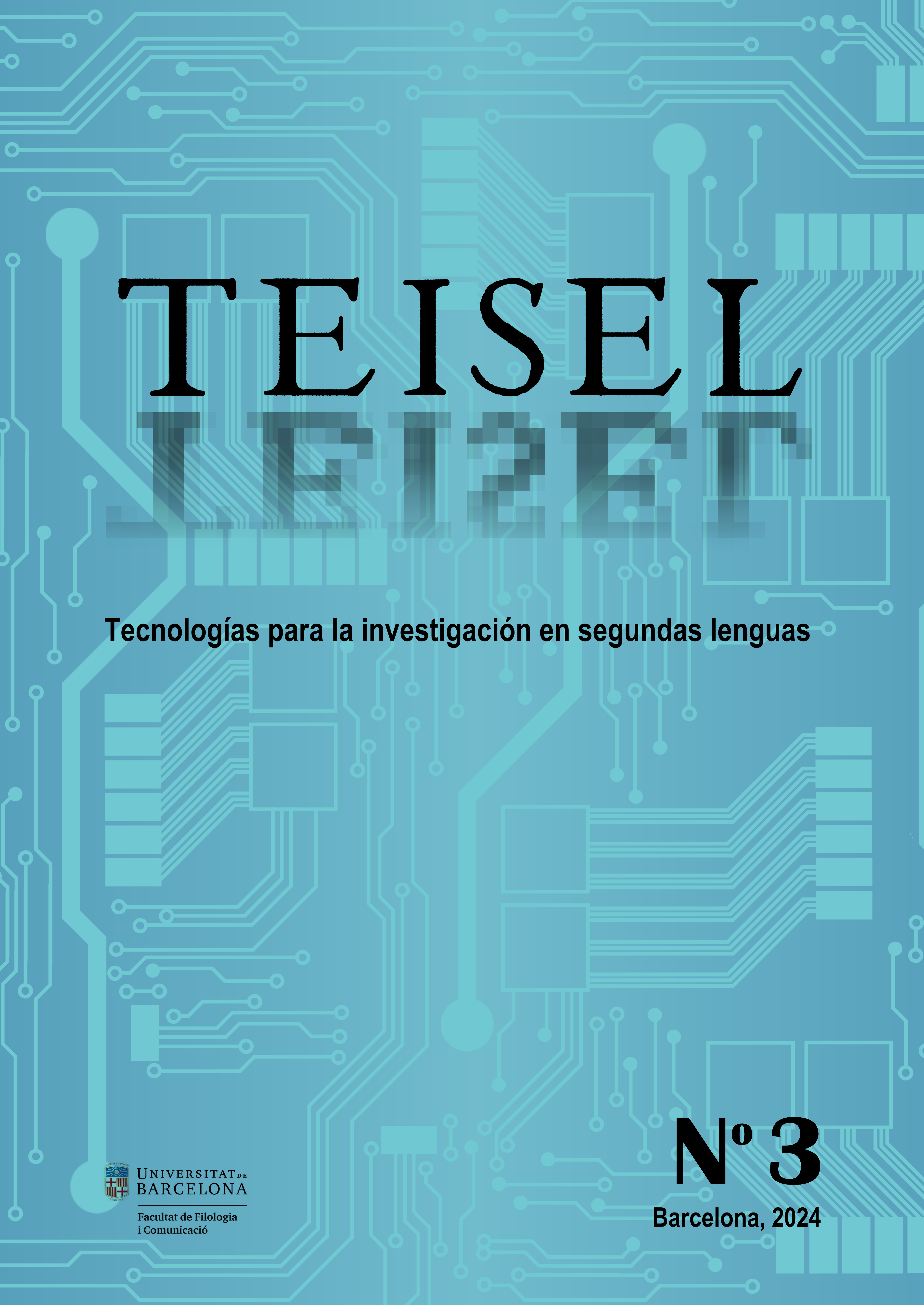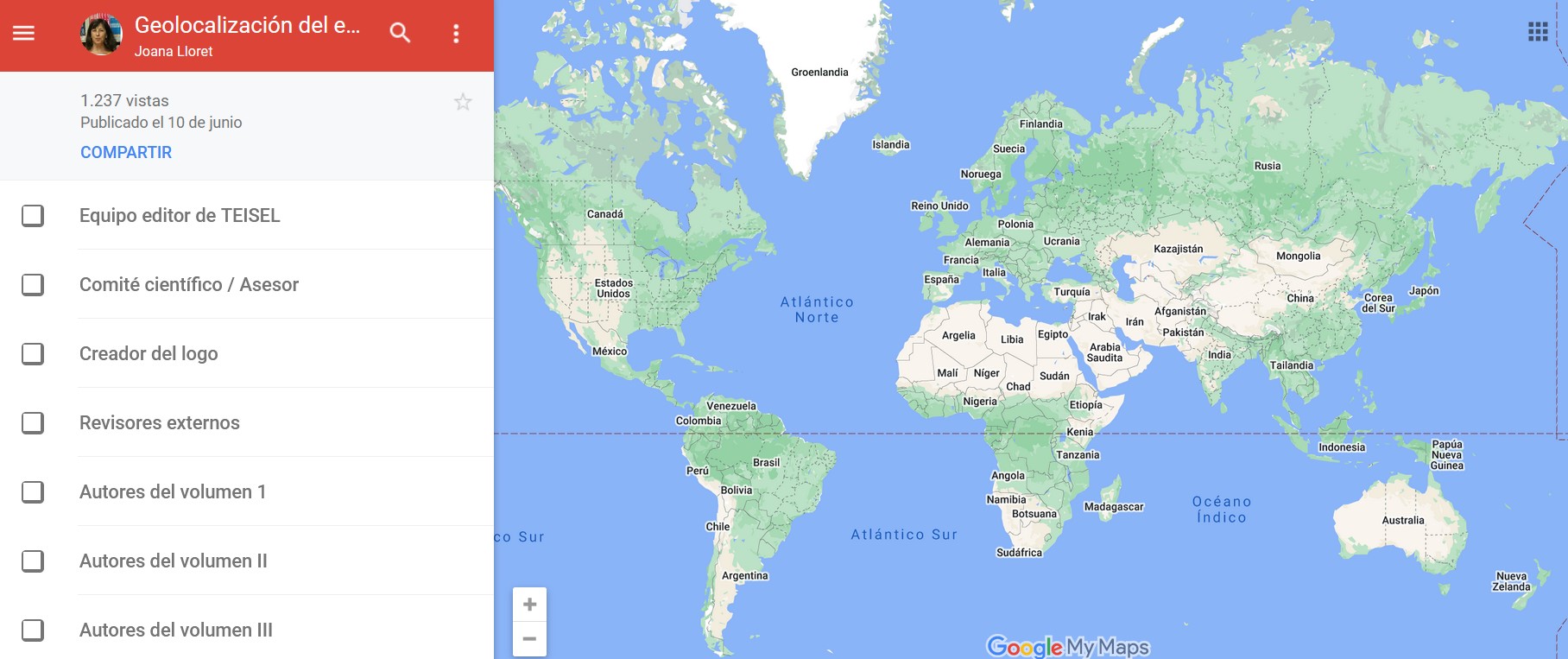Automatización del diseño de tareas: creando puentes entre la investigación en segundas lenguas y su instrucción
DOI:
https://doi.org/10.1344/teisel.v3.45855Palabras clave:
tecnología educativa, lingüística computacional, enseñanza basada en tareas, diseño de tareas para segundas lenguasResumen
Este estudio aborda la cuestión de la transferencia de la investigación en la adquisición de segundas lenguas (SLA) a la instrucción de segundas lenguas y lenguas extranjeras (L2), más concretamente en el marco del Enseñanza de Lenguas Basada en Tareas (TBLT). El objetivo principal es mostrar cómo la herramienta web taskGen (https://taskgen.eu), cuyo primer uso es la creación de materiales didácticos, también funciona como medio para la transferencia y proporciona información valiosa sobre prácticas de enseñanza, necesidades de los profesores, estrategias pedagógicas y diseño de tareas en L2.
En primer lugar, se presenta taskGen como una herramienta web que ayuda y forma a los profesores en el diseño de tareas L2 e integra recursos de procesamiento de lenguaje natural (NLP); a continuación, se muestra cómo la información cuantitativa obtenida a través del análisis de datos a partir del uso masivo de la herramienta se puede combinar con métodos cualitativos como entrevistas, observaciones, protocolos de opinión en vivo, cuestionarios, estudios de casos y transcripciones para generar investigación. La recopilación automática (cuantitativa) de datos recoge información de los contextos de enseñanza, los objetivos de las tareas, las estructuras del flujo de tareas, las opciones de atención en la forma, y el acceso a los archivos de ayuda. La información recopilada, además de retroalimentar la herramienta, contribuye a comprender las opciones y patrones en los diseños de los profesores, y a explorar la intersección entre la teoría SLA y TBLT, por un lado, y las prácticas de diseño de tareas, por otro. El análisis cualitativo que se lleva a cabo se orienta hacia las experiencias de los profesores durante el diseño de tareas. Finalmente, se presentan las líneas de investigación futuras que prevemos que se llevarán a cabo conforme crezca el uso de taskGen y se vayan implementando nuevas funcionalidades en la herramienta
Descargas
Descargas
Publicado
Número
Sección
Licencia
Derechos de autor 2024 Joan Castellví, Roger Gilabert Guerrero, Elisabet Comelles Pujadas

Esta obra está bajo una licencia internacional Creative Commons Atribución 4.0.
Con licencia de Reconocimiento de Creative Commons v. 4.0





